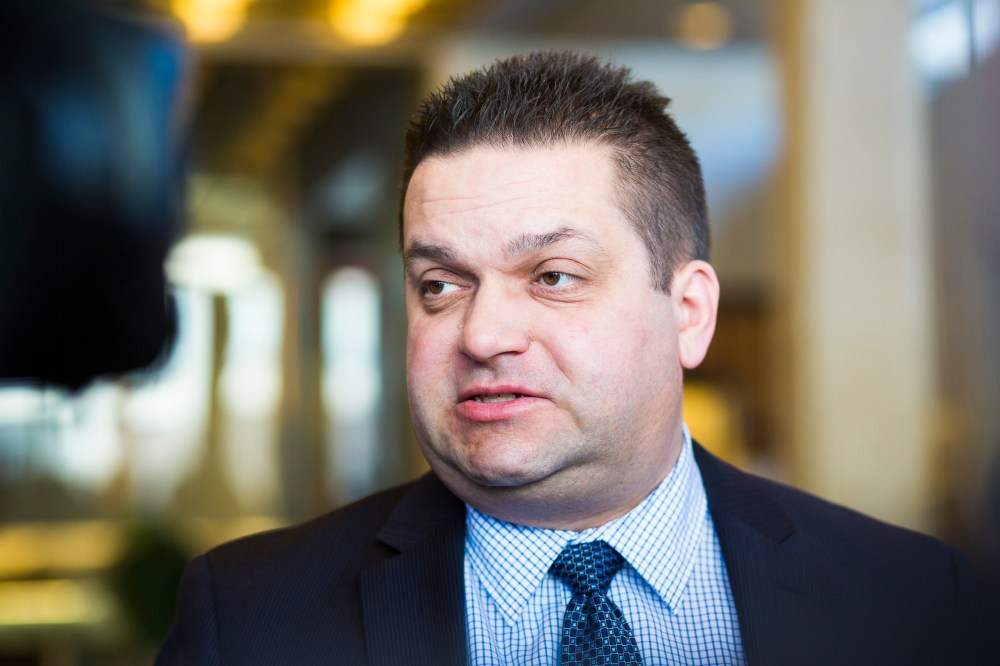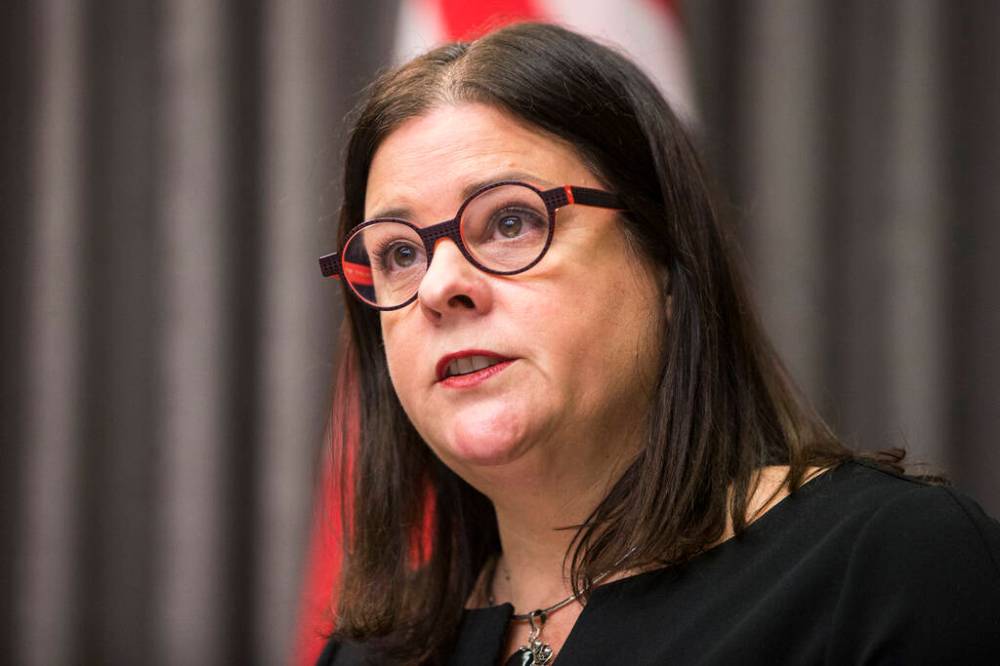Province melts funding freeze, throwing fiscal lifeline to municipalities
Advertisement
Read this article for free:
or
Already have an account? Log in here »
To continue reading, please subscribe:
Monthly Digital Subscription
$0 for the first 4 weeks*
- Enjoy unlimited reading on winnipegfreepress.com
- Read the E-Edition, our digital replica newspaper
- Access News Break, our award-winning app
- Play interactive puzzles
*No charge for 4 weeks then price increases to the regular rate of $19.00 plus GST every four weeks. Offer available to new and qualified returning subscribers only. Cancel any time.
Monthly Digital Subscription
$4.75/week*
- Enjoy unlimited reading on winnipegfreepress.com
- Read the E-Edition, our digital replica newspaper
- Access News Break, our award-winning app
- Play interactive puzzles
*Billed as $19 plus GST every four weeks. Cancel any time.
To continue reading, please subscribe:
Add Free Press access to your Brandon Sun subscription for only an additional
$1 for the first 4 weeks*
*Your next subscription payment will increase by $1.00 and you will be charged $16.99 plus GST for four weeks. After four weeks, your payment will increase to $23.99 plus GST every four weeks.
Read unlimited articles for free today:
or
Already have an account? Log in here »
Hey there, time traveller!
This article was published 24/02/2023 (1018 days ago), so information in it may no longer be current.
Manitoba municipal leaders gave a warm welcome to a $47-million increase in provincial operating grants, as the Progressive Conservatives formally put an end to a seven-year funding freeze that left local councils strapped for cash.
On Friday, Premier Heather Stefanson said municipal operating grants will increase to $217 million from $170 million this year, after being stuck at 2016 levels. The Progressive Conservatives have led government since the 2016 election.
“Municipalities have been doing more with less, which is even more challenging given the current economic reality,” said Association of Manitoba Municipalities president Kam Blight.

Blight, reeve for the Rural Municipality of Portage la Prairie, commended the province on its change of course following years of advocacy by the AMM, which represents 137 incorporated municipalities.
The money will help municipalities respond to inflationary pressures, offset operating losses from the COVID-19 pandemic, and meet the needs of residents, he said. The RM of Portage will receive a 58 per cent increase to its operating funding, to $846,018 from $535,982.
“This will make a huge improvement in them being able to carry on and improve services, plus provide opportunities for future growth,” Blight said.
Speaking to municipal leaders and media gathered inside the balmy Leaf biome at Assiniboine Park in Winnipeg, Stefanson said the operating grants will represent the new funding baseline going forward. All municipalities with 5,000 people or less and communities in the North will also receive a $25,000 grant.
Stefanson said the Tories are committed to talks with the AMM to determine how operating grants may increase beyond the 2023-24 fiscal year.
At an average increase of 28 per cent, the operating grants cover slightly more than the average increase to inflation rates since 2016. According to the Bank of Canada, costs have risen by about 21 per cent since January 2016.
“We know what freezing funding does to municipalities — it doesn’t help,” Stefanson said. “So that’s why we’re here putting that money back into the baseline funding moving forward.”
The City of Winnipeg will get a $16.7-million hike to its operating grant, bringing the total annually to $137.9 million from $121.2 million (a 14 per cent increase). The province also noted $13 million more for Winnipeg Transit, which was previously announced.
Winnipeg finance committee chairman Coun. Jeff Browaty said the city was hoping for more, and will continue to work with the province and the AMM to refine the funding framework and future increases to help with long-term planning.

“Is the dollar number the one we were hoping for or looking for? Probably not. But again, there’s still other stuff to come and we’re looking forward to continuing to work with the province,” Browaty said.
The City of Brandon is getting a 39 per cent increase in funding, to $8.3 million from $6 million.
“This moves us in the right direction,” Brandon Mayor Jeff Fawcett said. “We’re happy to know that the province is listening to us and that bodes well for the further discussions we’ll have.”
Municipalities including the City of Winnipeg have called for a funding model that better responds to needs and reflects local governments’ share of economic growth and revenue creation.
The per capita funding model is not serving the majority of communities, Blight said. He’s looking for a simplified model with funds indexed to keep up with economic growth.
“You have a lot of municipalities that are covering a massive span of miles and very, very low population base,” he said. “Those services still need to be provided to the residents, but the only true… form of revenues for municipalities is through taxation and that taxation truly wasn’t there.
“When you look at the per capita grants being provided to a small population area it’s very difficult for them to deliver the necessary services that they need to.”
Municipal Relations Minister Andrew Smith said the calculation for the latest round of grants has been modernized to account for community needs in addition to population. Fine-tuning on the framework continues, he noted.
“We’re hoping that this can plug in the holes and make them whole again after funding didn’t increase over the last seven years,” Smith said.

MIKAELA MACKENZIE / FREE PRESS FILES
On Friday, Premier Heather Stefanson said municipal operating grants will increase to $217 million from $170 million this year, after being stuck at 2016 levels.
In a statement Friday, both the Manitoba Liberals and New Democrats said the City of Winnipeg was shortchanged.
“(The PCs’) cuts mean worse roads, fewer programs for kids and less support for transit. Election-year promises can’t cover up their failures,” NDP municipal relations critic Lisa Naylor said.
“The PCs have created a massive backlog of funding needs for municipalities, and this year’s increase comes nowhere close to covering it,” Liberal leader Dougald Lamont said. “This is less of an investment, and more of an electoral cry for help.”
Manitoba’s next election is scheduled for Oct. 3.
danielle.dasilva@freepress.mb.ca
History
Updated on Friday, February 24, 2023 12:29 PM CST: Changes headline




